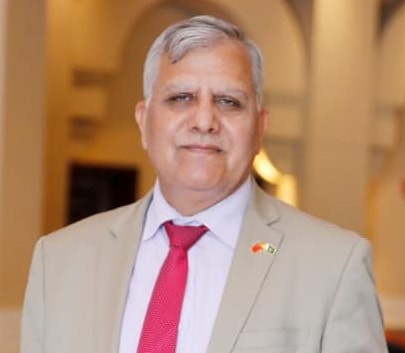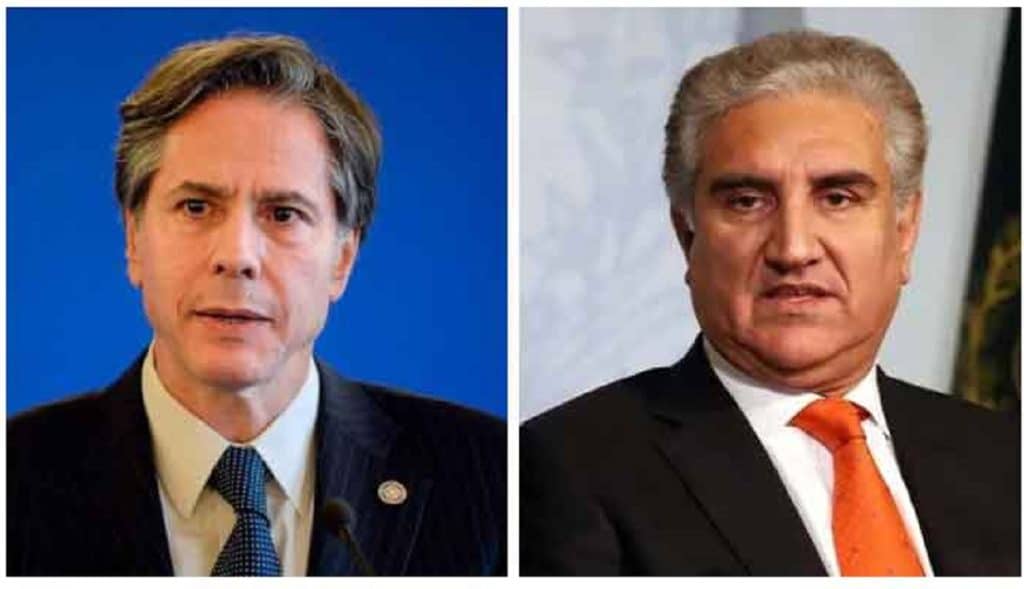By Prof. Engr. Zamir Ahmed Awan
The United States of America is among the first countries to recognize Pakistan after getting independence from British ruled India in 1947.

Pakistan was a close ally with the U.S. during the cold war era, a front-line state in Afghan-War, and a non-NATO ally in the war on terror, yet facing worst sanctions like the Pressler amendments, Kerry Logar bill, etc., and frequently coerced directly or indirectly through India, Saudi Arabia or UAE, etc. Pakistan hosts one of the largest and most housed embassies of the United States in Islamabad. In terms of both personnel and facilities, the largest consulate-general is located in the city of Karachi.
With Pakistan’s Prime Minister visiting the United States on 21 July 2019, Prime Minister Imran Khan and President Donald Trump agreed to “reset” the relationship between the two countries and agreed to strengthen the military relations with President Trump lauded Pakistan’s efforts to end the war in Afghanistan due to Pakistan’s participation in the Afghan peace process.
Pakistan’s Foreign Minister Makhdoom Shah Mahmood Qureshi and the U.S. Secretary of State Antony J. Blinken had, on January 29, 2021, a first formal telephone conversation cordially.
The Foreign Minister congratulated Secretary Blinken on assuming his office as Secretary of State. He highlighted Pakistan’s commitment to forging a comprehensive partnership with the United States based on the convergence of interests on various issues. Pakistan is the first country wishing peace and stability in Afghanistan. Pakistan is desirous of regional peace and stability, including the permanent settlement of the Jammu and Kashmir issue with India under the resolutions passed by UNSC. Emphasizing Pakistan’s transformation, the Foreign Minister stressed that Prime Minister Imran Khan’s government had a new vision that placed a premium on building an economic partnership, building a peaceful neighborhood, and enhancing regional connectivity. Pakistan is a peace-loving nation, and Pakistan’s visionary leadership is implementing its policy of cooperation and development.
Foreign Minister Qureshi informed Secretary Blinken that peace in Afghanistan through a negotiated political settlement was one of the necessary convergences between the two countries. It was essential to reduce the violence leading to a ceasefire and secure a wide-ranging political solution in Afghanistan. Pakistan had expedited the Afghan peace process and endured commitment to working with the United States as a peace partner, and believes that Afghan-led, Afghan-owned, and political settlement is the only sustainable solution. Afghan peace and stability are vital for Afghanistan and the prosperity and development of the whole region. There exists a broad consensus in the region for Afghan-peace. This opportunity should not be missed. It is desired that the peace negotiations initiated in Doha should be continues and taken positive steps to implement the agreed-upon decisions.
The Foreign Minister also emphasized Pakistan’s resolute measures and immense sacrifices in the fight against terrorism. Pakistan is the only country that suffered the heaviest losses in terms of precious human lives and economic losses, and social problems. Pakistan had paid a very high price in the Afghan war.
Secretary Blinken recalled the U.S.–Pakistan cooperation over the years and eminent that the two countries had a range of areas to engross in. He admitted the sacrifices of the people of Pakistan in the fight against terrorism.
Joe Biden-Administration has a long history of interacting with Pakistan under various Presidents and understands Pakistan’s real potential and crucial importance. It is expected, the current administration must be well aware of changing geopolitics and, realizing Pakistan’s pivotal role in the region, will review its policies toward Pakistan. There exists a vast potential for cooperation and collaboration based on mutual convergence of interests.
Foreign Minister Qureshi and Secretary Blinken agreed to persistently engaged and work together to advance the two countries’ bilateral agenda and promote common interests in the region and beyond.
Author: Prof. Engr. Zamir Ahmed Awan, Sinologist (ex-Diplomat), Editor, Analyst, Non-Resident Fellow of CCG (Center for China and Globalization), National University of Sciences and Technology (NUST), Islamabad, Pakistan.
(The opinions expressed in this article are solely those of the authors and do not necessarily reflect the views of World Geostrategic Insights)







